Selected Press
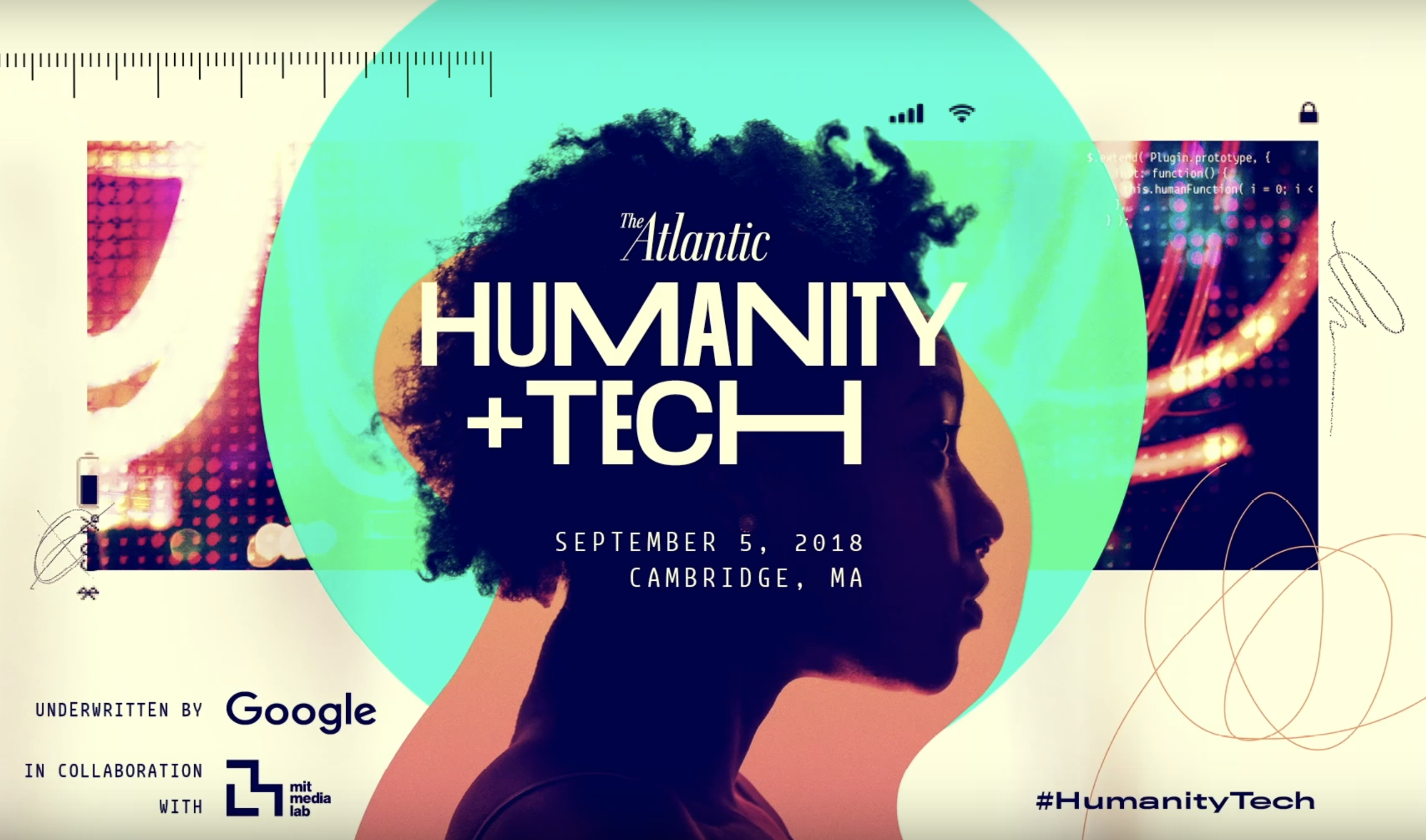
2018 | The Atlantic: How is the Digital Age Playing Out Around the Globe?
What places and what technologies don’t we know about? What are we all getting wrong about our perceptions of innovation in non-Western countries? How can new technology help build communities and inspire new movements for social change around the world? In what ways have innovation and creativity thrived in areas with limited resources?
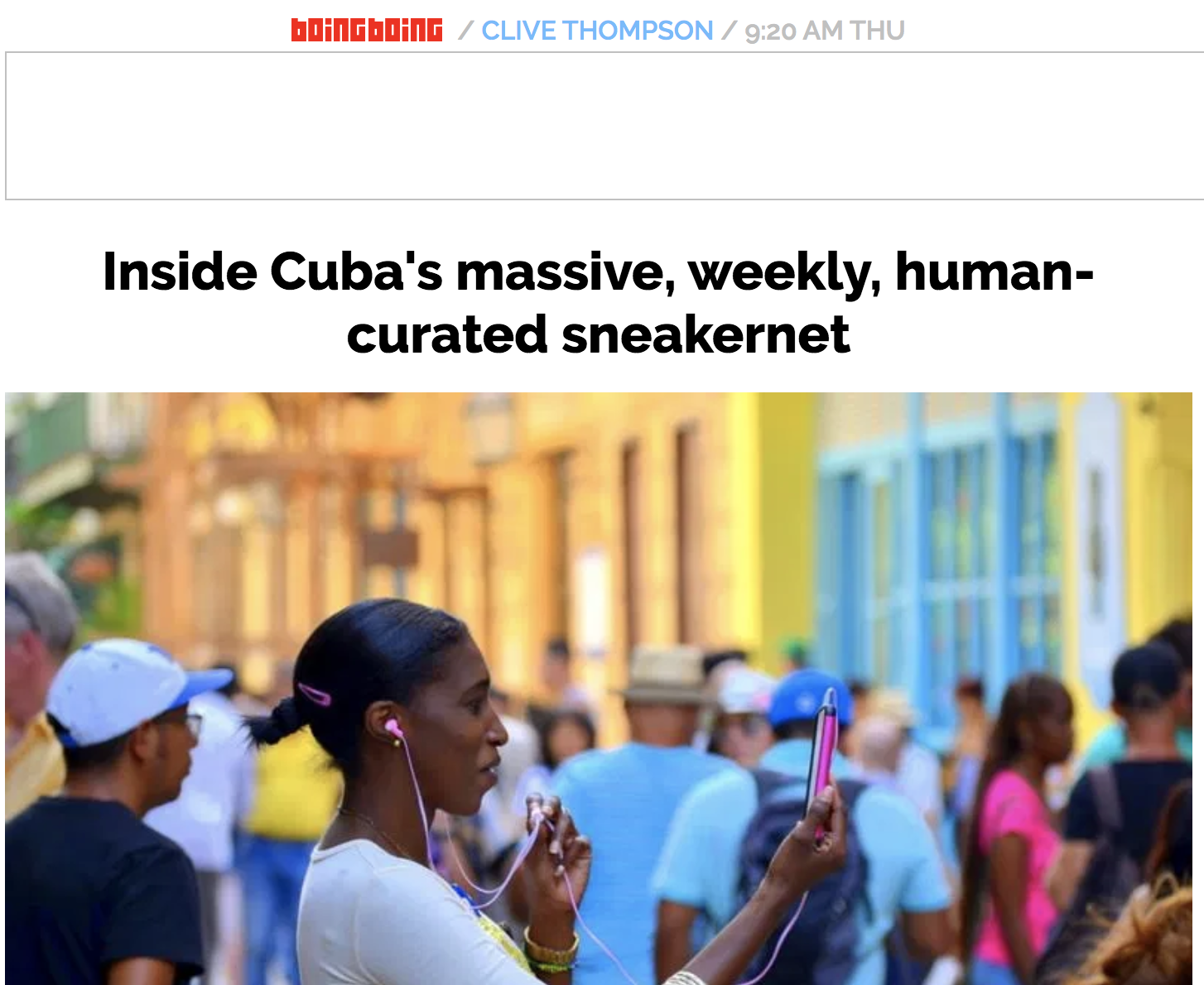
2018 | Boing Boing: Inside Cuba’s Massive, Weekly, Human-Curated Sneakernet
Most Cubans have terrible access to the Internet -- estimates suggest only 5-25% of the populace can regularly get online. The government made it a bit easier in recent years with paid wifi hotspots, but they require dough, and they're super slow.
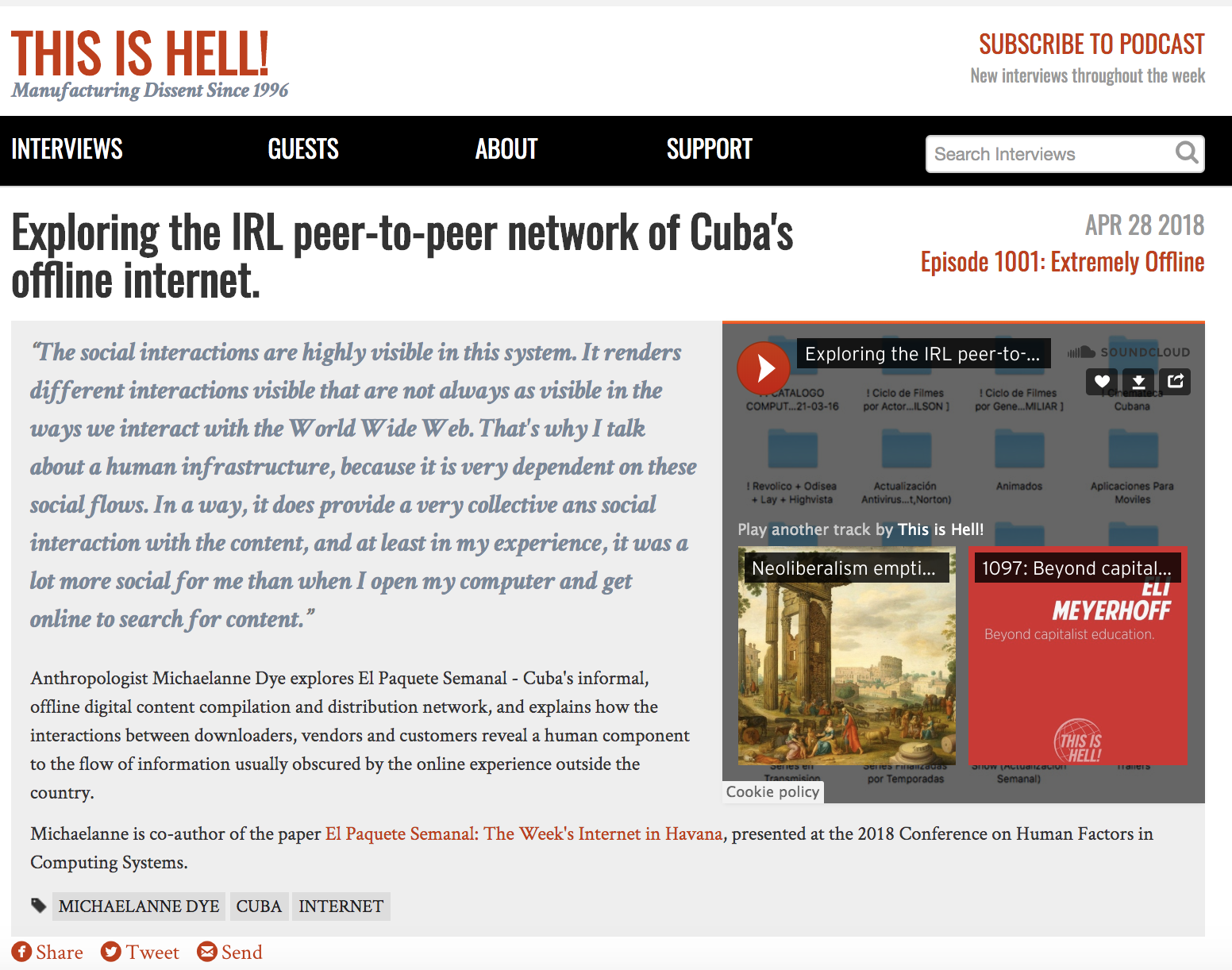
2018 | This is Hell: Exploring the IRL peer-to-peer network of Cuba’s offline internet
"The social interactions are highly visible in this system. It renders different interactions visible that are not always as visible in the ways we interact with the World Wide Web. That's why I talk about a human infrastructure, because it is very dependent on these social flows.

2016 | Reuters: Millenials lead private media opening in Communist-run Cuba
A handful of independent, web-based news outlets in Cuba are chipping away at the Communist-run island’s half-century state media monopoly, challenging the official version of reality. While low levels of internet access across the Caribbean island limits the outlets’ domestic reach and they are not fully free to speak their mind...
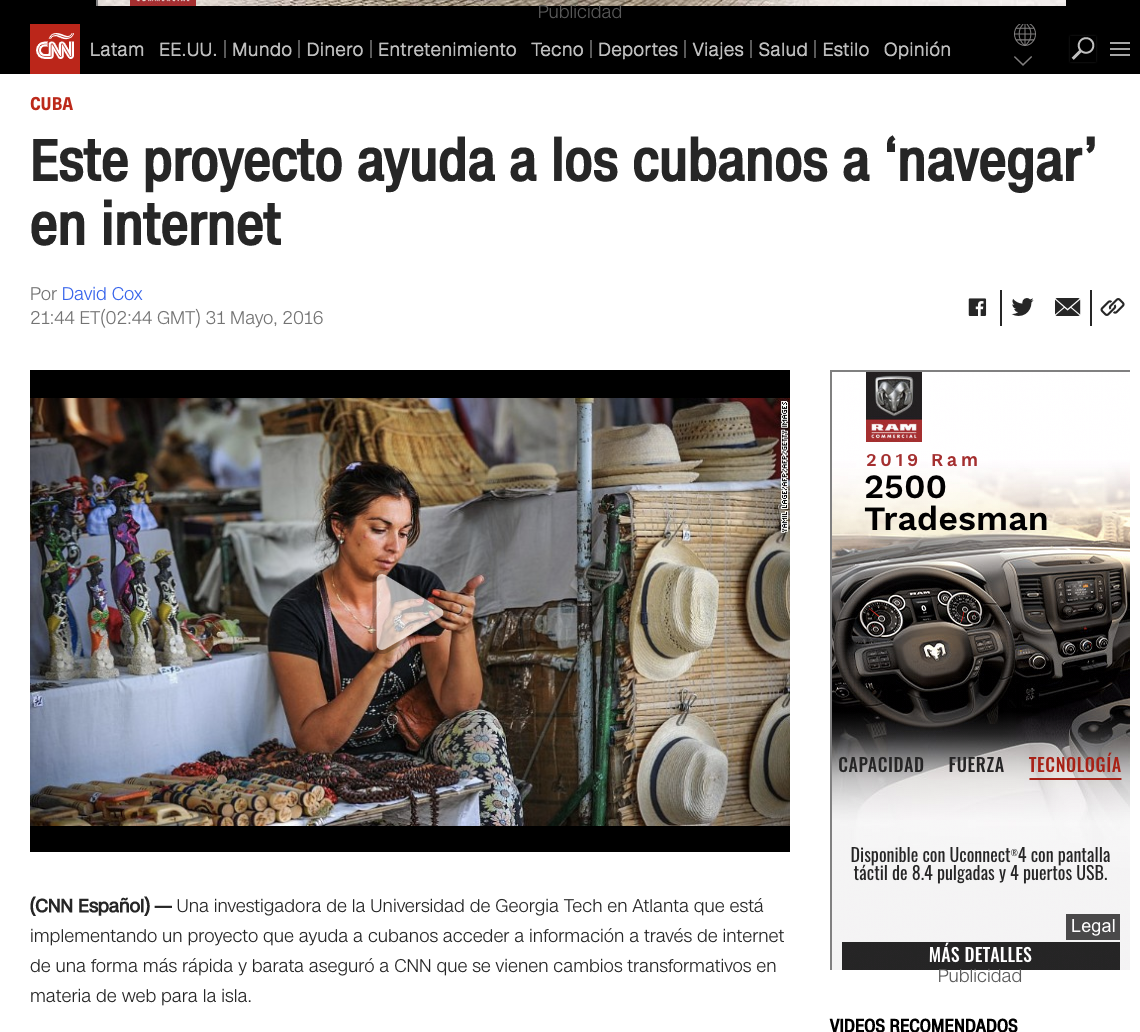
2016 | CNN en Español: Este Proyecto Ayuda a Los Cubanos a Navegar en Internet
Una investigadora de la Universidad de Georgia Tech en Atlanta que está implementando un proyecto que ayuda a cubanos acceder a información a través de internet de una forma más rápida y barata aseguró a CNN que se vienen cambios transformativos en materia de web para la isla.
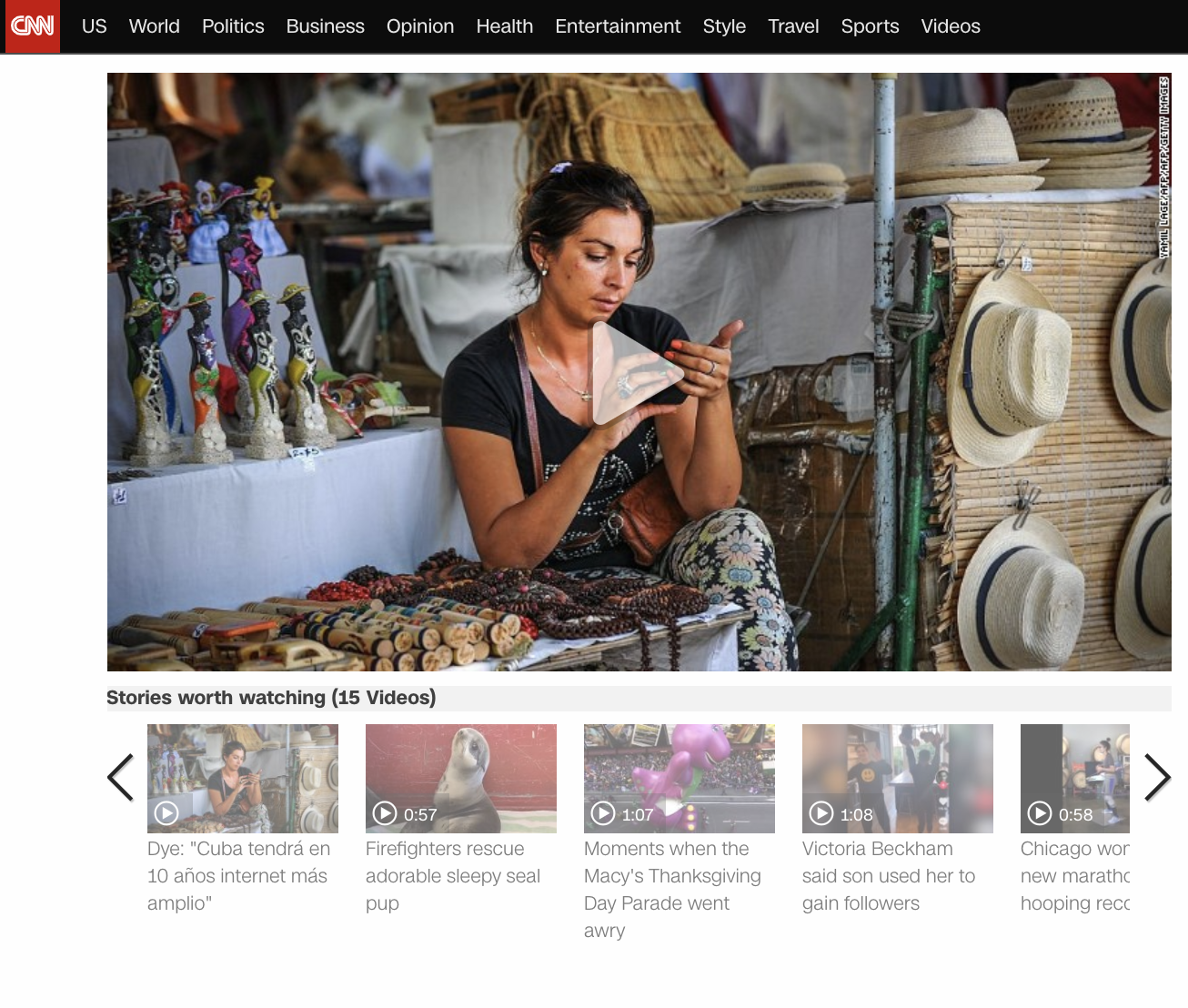
2016 | CNN en Español: Dye: “Cuba tendrá en 10 años internet más amplio”
La investigadora Michaelanne Dye de Georgia Tech habla del futuro del internet en la isla y del proyecto Cuba Intercambio.
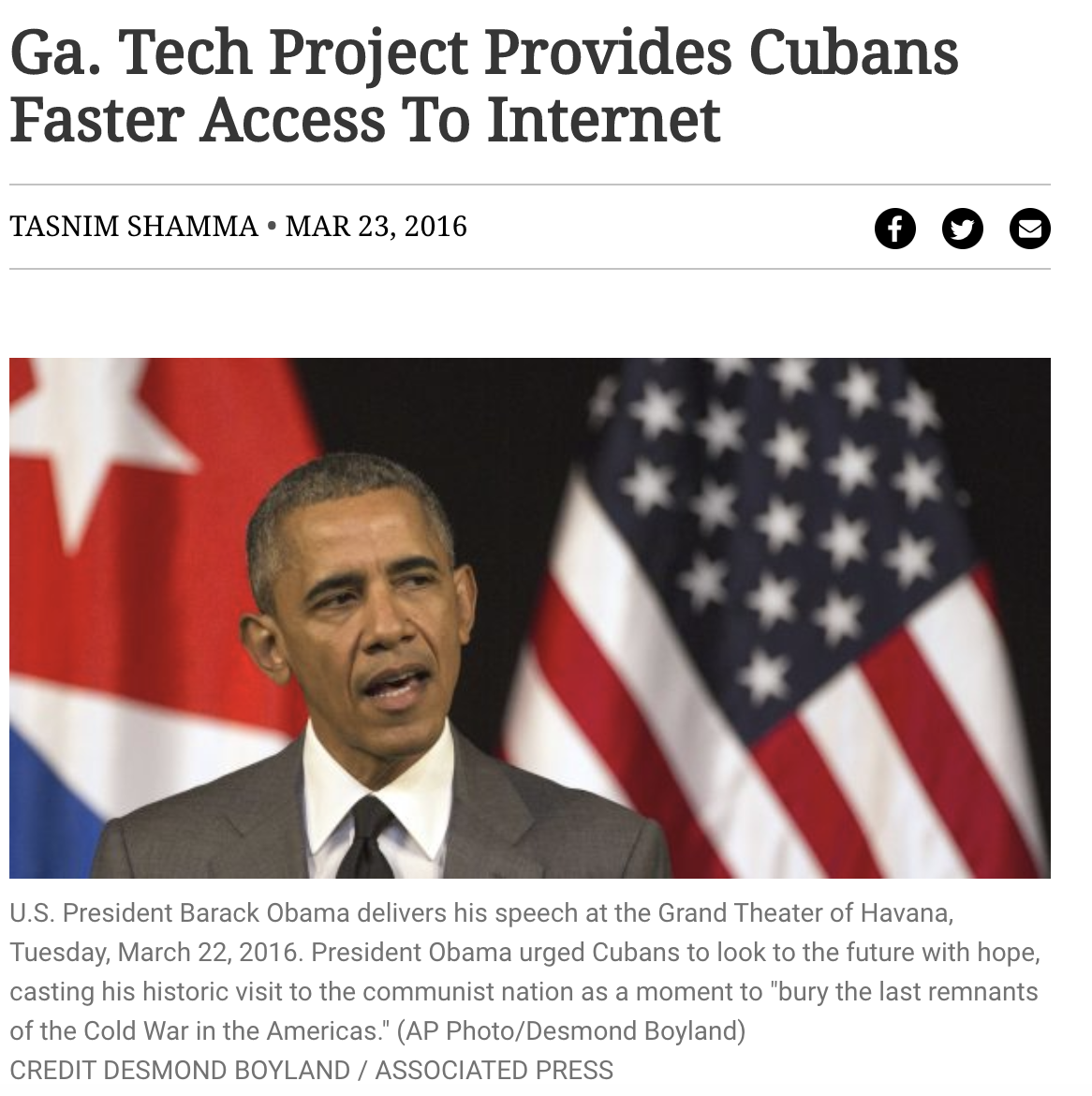
2016 | 90.1 FM WABE: Ga. Tech Project Provides Cubans With Faster Internet
President Barack Obama called on the Cuban government to expand Internet access for its citizens in a speech in Havana on Tuesday. In Cuba, less than about 5 percent of the population has open Internet access. That’s slowly changing as the government adds a few Wi-Fi hotspots and foreign companies work to update the digital infrastructure.

2016 | Motherboard: Cuba’s Government – Not Obama or Google – Will Decide When Cubans Get the Internet
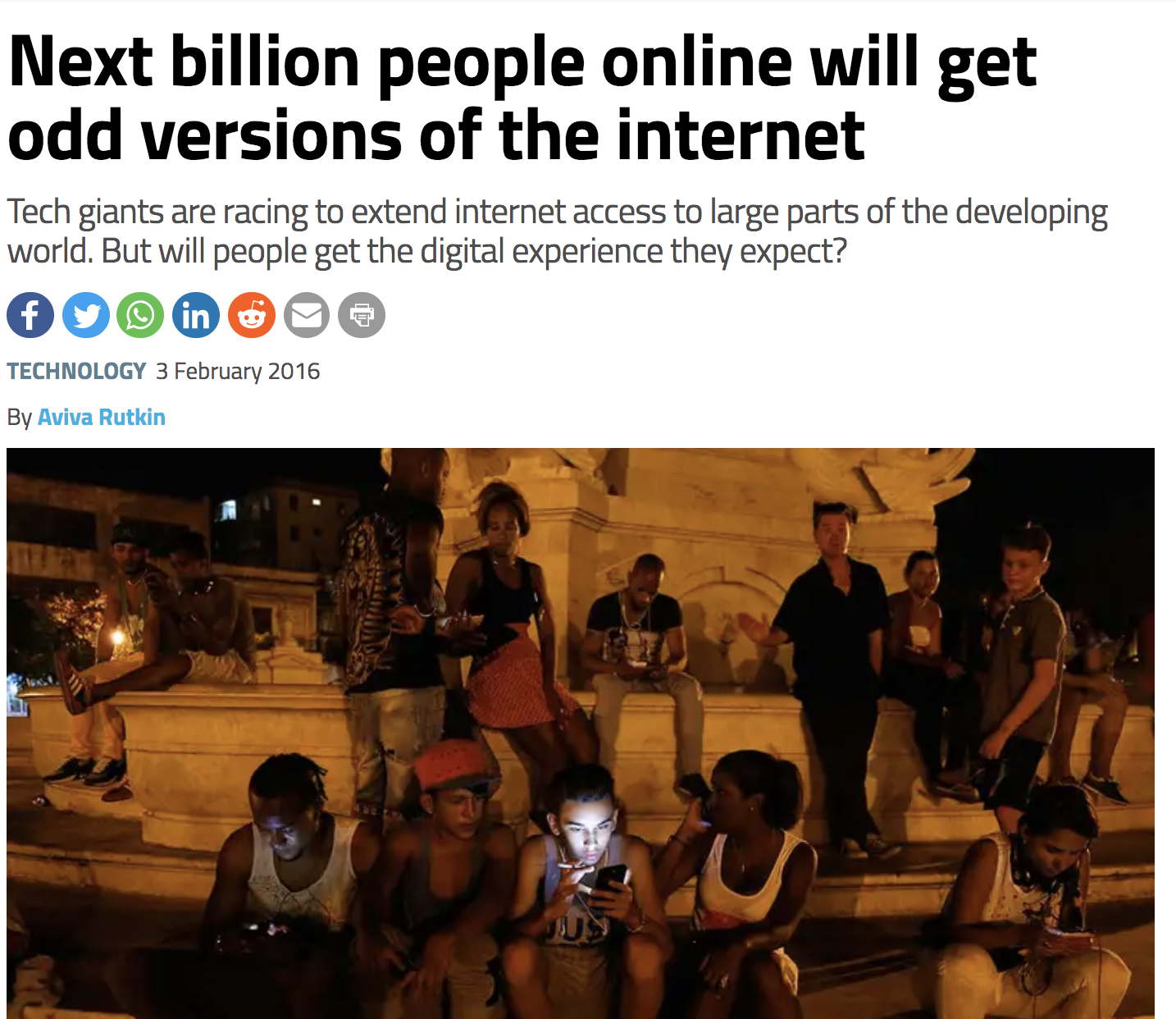
2016 | New Scientist: Next Billion People Online Will Get Odd Versions of the Internet
Tech giants are racing to extend internet access to large parts of the developing world. But will people get the digital experience they expect?
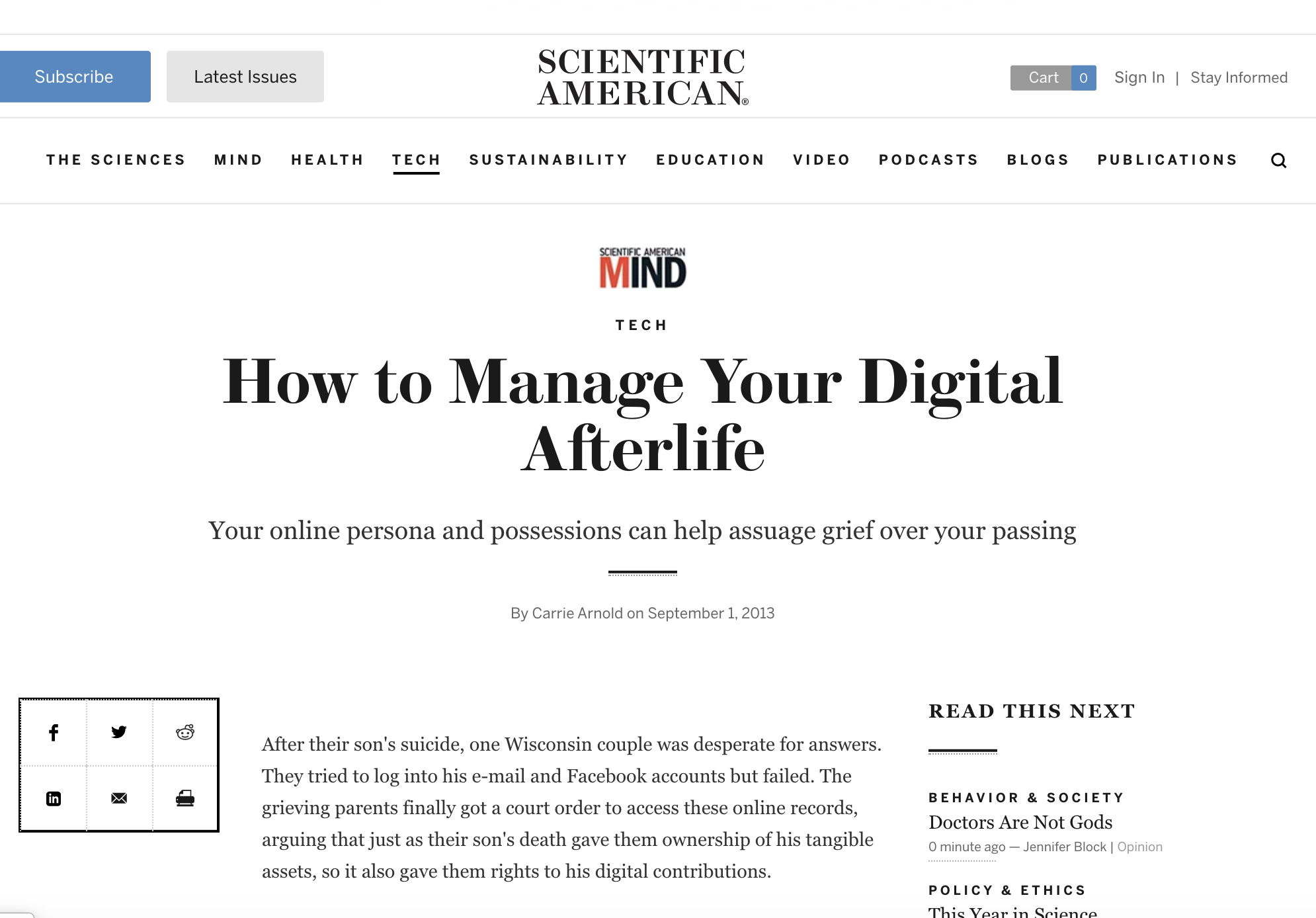
2013 | Scientific American: How to Manage Your Digital Afterlife
After their son's suicide, one Wisconsin couple was desperate for answers. They tried to log into his e-mail and Facebook accounts but failed. The grieving parents finally got a court order to access these online records, arguing that just as their son's death gave them ownership of his tangible assets, so it also gave them rights to his digital contributions.
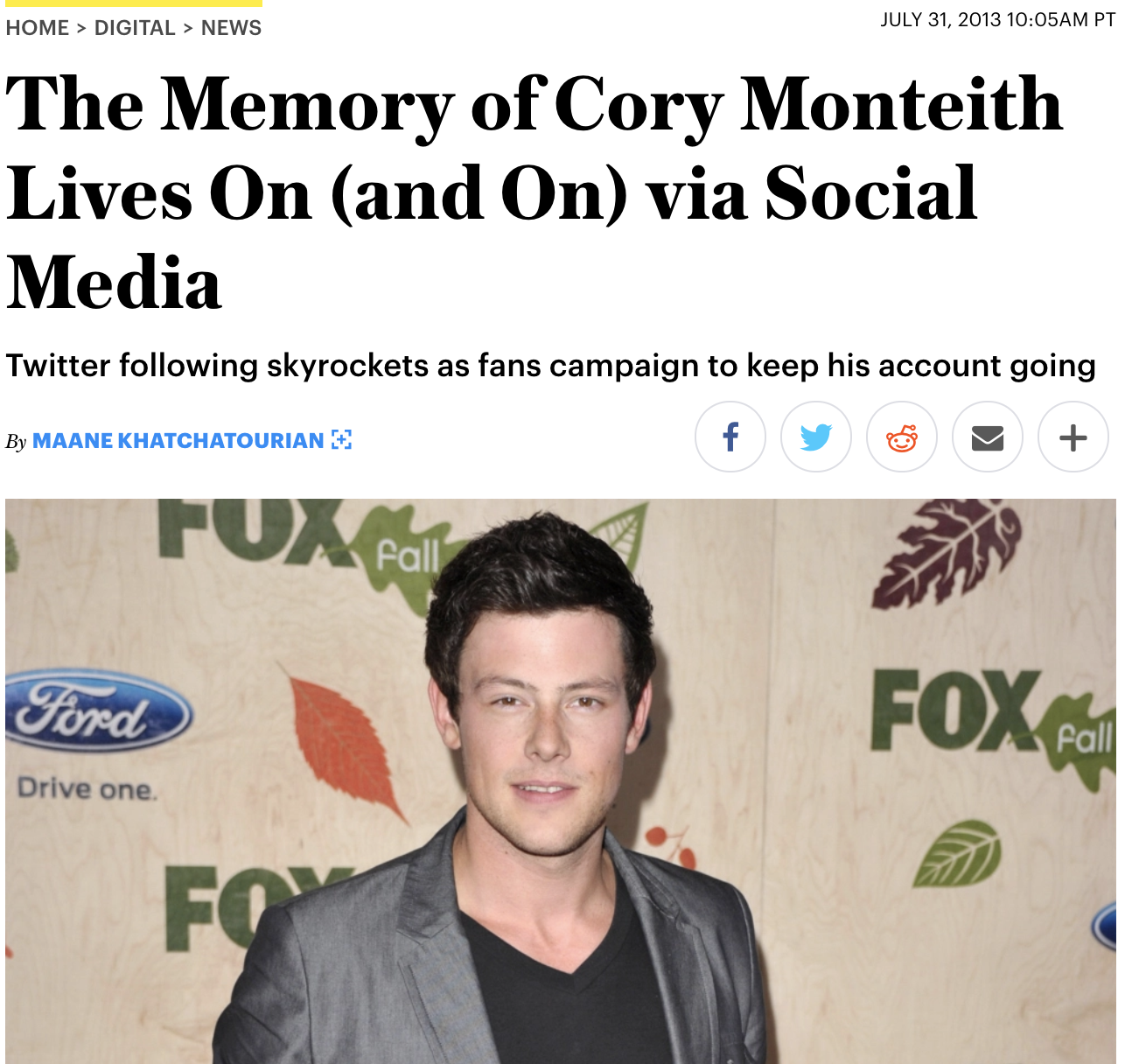
2013 | Variety: The Memory of Cory Monteith Lives On (and On) via Social Media
Weeks after the death of Cory Monteith, his fans are continuing to honor his memory on social media in some unusual ways. Even though his Twitter and Instagram accounts went dormant after he passed on July 13th, they have both since managed to add hundreds of thousands of followers, not to mention grass-roots campaigns to preserve those accounts.

2013 | Mashable: How 1 Billion People Are Coping With Death and Facebook
"I think I'm going to go online," said Cheryl, logging in to Facebook from her hospital bed. She soon reconsidered, however. "I don't know what to write: 'Hey I almost died last night. What's up with you guys?'" Months later, Cheryl died from Hodgkin's lymphoma.
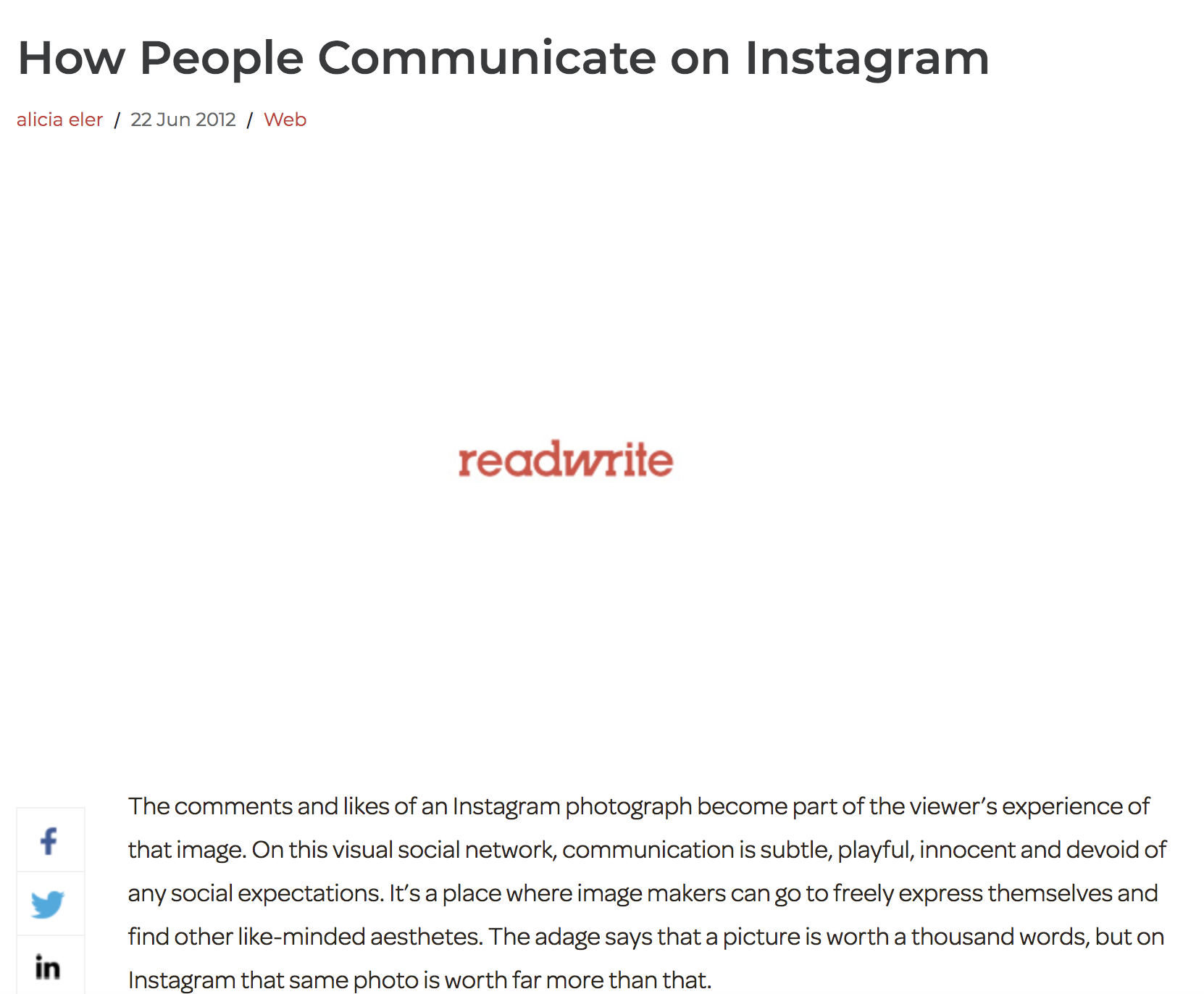
2012 | ReadWrite: How People Communicate on Instagram
The comments and likes of an Instagram photograph become part of the viewer’s experience of that image. On this visual social network, communication is subtle, playful, innocent and devoid of any social expectations. It’s a place where image makers can go to freely express themselves and find other like-minded aesthetes. The adage says that a picture is worth a thousand words, but on Instagram that same photo is worth far more than that.
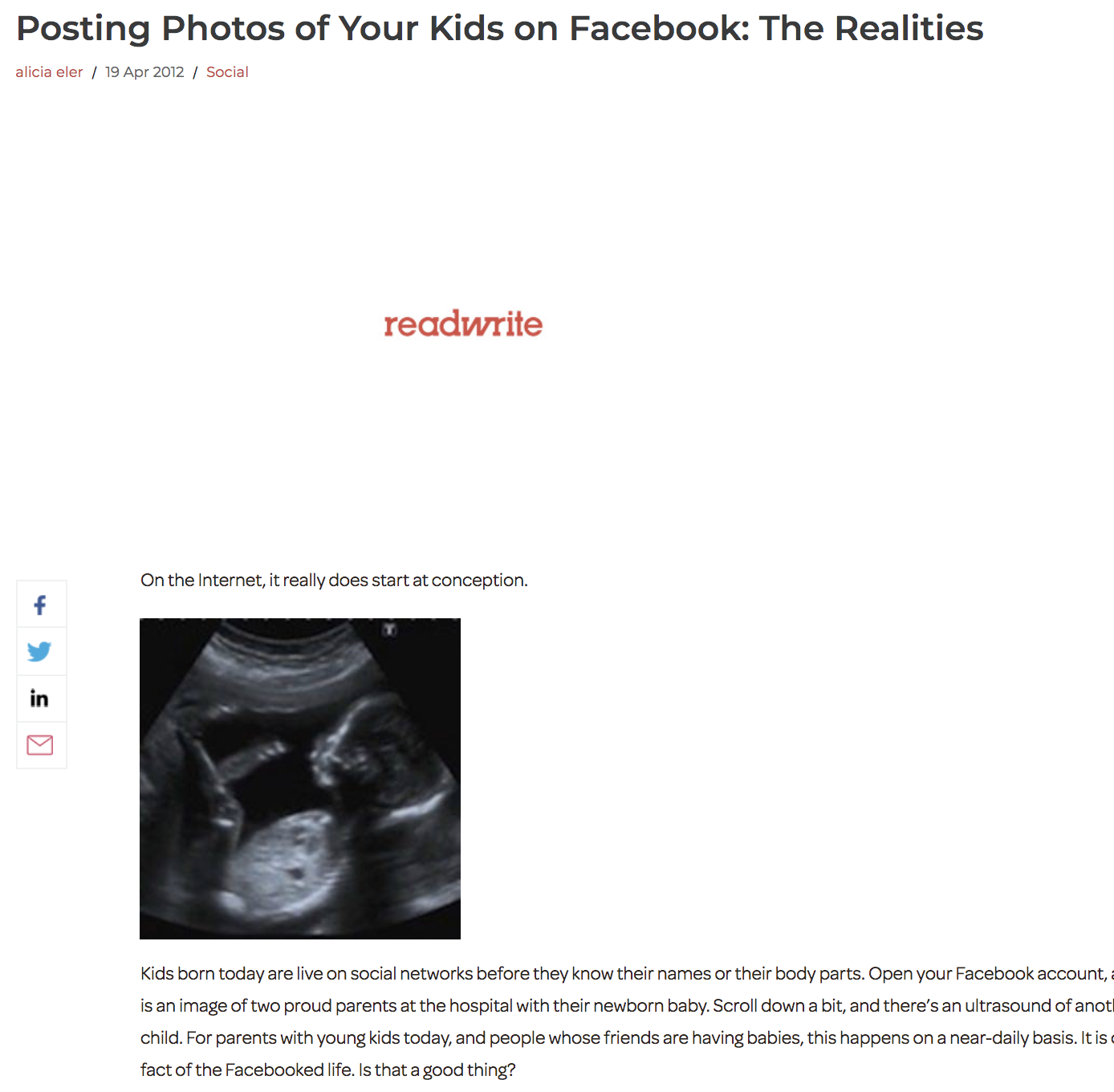
2012 | ReadWrite: Posting Photos of Your Kids on Facebook: The Realities
On the Internet, it really does start at conception. Kids born today are live on social networks before they know their names or their body parts. Open your Facebook account, and at the top of the news feed is an image of two proud parents at the hospital with their newborn baby.
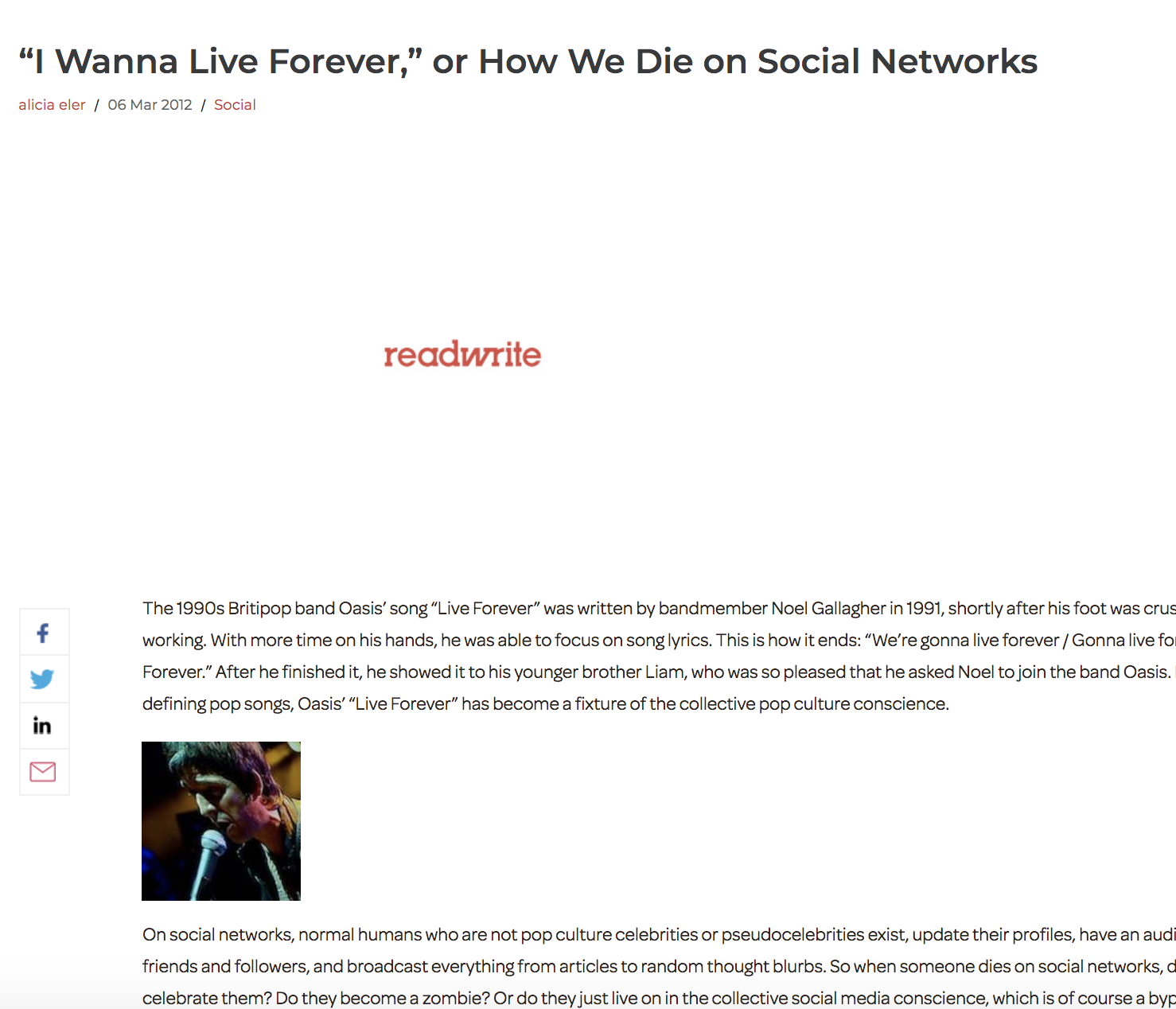
2012 | ReadWrite: I Wanna Live Forever, or How We Die on Social Networks
The 1990s Britipop band Oasis’ song “Live Forever” was written by bandmember Noel Gallagher in 1991, shortly after his foot was crushed by a pipe while working. With more time on his hands, he was able to focus on song lyrics. This is how it ends: “We’re gonna live forever / Gonna live forever / Live forever / Forever.” After he finished it, he showed it to his younger brother Liam, who was so pleased that he asked Noel to join the band Oasis.